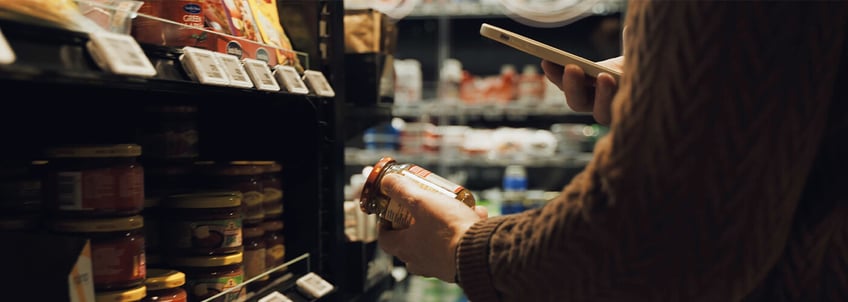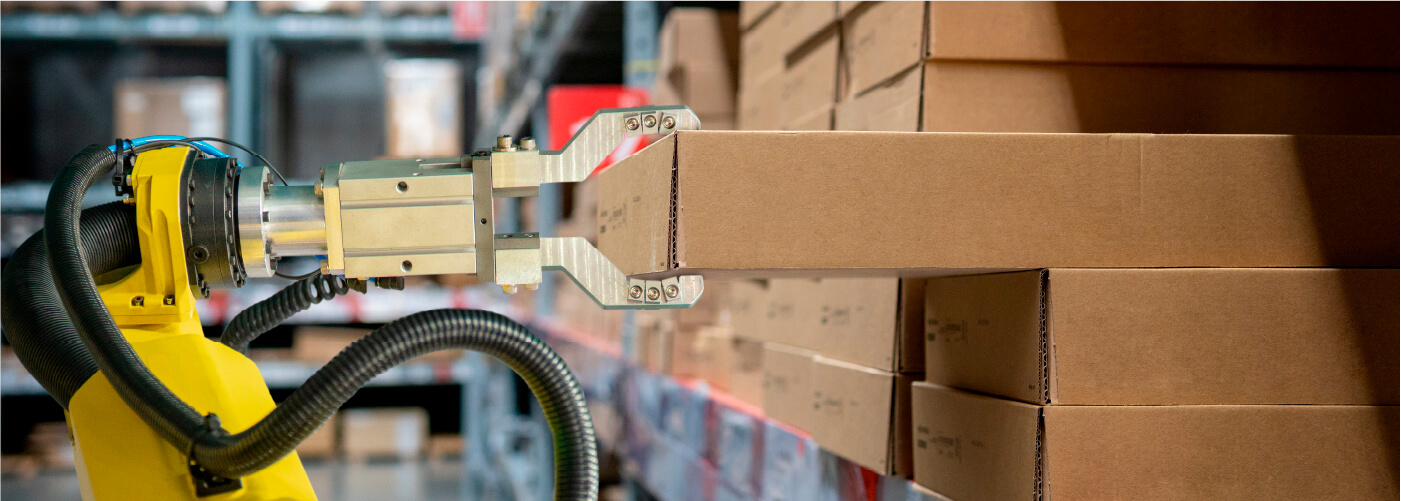
Supermarket brands have demonstrated impressive resilience in facing difficult times. Despite the obstacles encountered, they swiftly adapted to evolving regulatory environments and shifting consumer trends, enthusiastically embracing cutting-edge technologies to enhance their market position and achieve their objectives.
In the past, the integration of new technology was a lengthy strategic decision that could span months or even years. However, present-day retailers understand that embracing technology is not just important but essential for staying competitive and profitable in the market.
The innovative strategies implemented by UK supermarkets extend beyond the realm of groceries, offering valuable insights for retailers in various sectors looking to revamp their stores and secure long-term success. Here are eight inspirational ideas drawn from these innovators.
1. ‘Scan pay go’ technology for easier, safer in-store shopping
Sainsbury’s is one of the latest UK supermarkets promoting scan & go technology. With Sainsbury’s SmartShop, customers can use a retailer’s mobile device or run the app on their own mobile to scan and bag products as they shop in store. Other UK supermarkets are embracing the scan & go concept. Asda has made mobile scan & go available in all of its almost 600 stores, M&S has doubled the number of stores offering “Mobile Pay Go” to over 100, and Tesco has “Scan as You Shop” available in almost 600 large-format stores.
Consumer uptake of the technology is rising, as it provides clear benefits:
- consumers can shop with little to no staff interaction and reduced risk of staff handling their products
- the shopping process is faster
- it’s easier to avoid contact with other shoppers
- queues at checkout are reduced.
Other factors also play a role in rising usage rates. A common feature of the apps and devices is that they provide a running total of the shopping, helping consumers stay within their budgets. Several also have a shopping list feature, which allows shoppers to upload a digital shopping list and have it rearranged in the order that items appear in the aisles – ideal for easing in-store navigation, managing crowd flows and improving the overall experience.

2. Removing the checkout process
Budget supermarket brand Aldi is believed to be developing its own cashierless Amazon Go rival. The company has put out a call for automatic product recognition technologies, specifically requesting to work with companies who have developed technology that supports automatic recognition of products through in-store cameras, shopping cart sensors or via users’ smartphones.
It comes amid rising demand for frictionless checkouts, with the likes of Tesco also competing to bring the technology to market. The company first tested a completely cashless store in 2018, but is yet to roll it out on a wider scale.
Amazon Go, meanwhile, is forging ahead with plans to open 10 UK stores without checkouts for paying. While in the past consumers needed an Amazon account and a specific app to access the Amazon Go stores, new technology called “Just Walk Out” enables shoppers to enter the store and shop using just their credit card. In-store cameras and shelf sensors keep track of what items are picked up, and the user’s card is automatically charged once they leave the store. This is as quick and contactless as a shopping experience can get – for now, at least.

3. Delivery options that cater to different needs
Morrisons has decided to put its customers first, committing to reducing the price of essential goods and helping its more vulnerable customers. Recently, it has partnered with retirement village builder McCarthy & Stone to offer a doorstep delivery service to the nation’s retirement communities.
The scheme enables the nation’s older population to order supermarket deliveries over the phone – ideal for those without internet access. It also means they don’t need to visit a grocery store, helping to protect those who are most vulnerable.
For more tech-savvy consumers, partnerships between grocery retailers and delivery services like Amazon Prime and Deliveroo have created the opportunity for ultra-fast delivery options. Amazon and Morrisons are offering same day delivery of chilled, frozen and fresh groceries for Amazon Prime members. Deliveroo is also speeding up the shopping process, allowing shoppers to order essential groceries from retailers including the Co-op, Morrisons and M&S and have them delivered to their doorstep in under 30 minutes.

4. Making warehouse operations more efficient
Online supermarket delivery firm Ocado uses robot-powered warehouses to keep online orders going out even when its human workforce is under considerable strain.
The robots are both delivery and picking & packing machines. In the warehouses they run around picking up food and bring them to a human who then packs groceries. But Ocado plans to extend these capabilities further. The company owns hundreds of patents which cover a range of automations and technologies from product-picking robots to item scanners that members of staff can wear on their heads. Ocado plans to harness this technology, and lease it, too, to supermarkets across the world.
Tesco also has opened 25 highly automated urban fulfillment centers, as it prepares for a greater shift to online. These centers are located at the back of stores and use the latest technology to improve picking efficiency by a factor of two or three.

5. Clamping down on shoplifting
Through a partnership with security solutions provider ThirdEye, Sainsbury’s is testing new concealment detector technology in its stores to catch thieves. The technology uses machine learning to detect when someone takes an item and places it in their pocket or coat. The system also records the interaction, so as soon as it sees suspicious activity, security staff is alerted and sent a short clip to check.
Sainsbury’s has already trialed an earlier version of the technology successfully: the system has helped prevent almost 6,000 thefts in 20 stores in the last year.
6. Building a sustainable future
Experts fear that the coronavirus pandemic has moved sustainability efforts to the bottom of their agenda. Many retailers have reverted back to widespread single-use plastic bags and more packaging as safety became the top priority. Consumers, too, veered towards packaged food that is less likely to have been handled, or coughed upon, by fellow shoppers.
But consumers are still demanding sustainability. A recent survey found that 55% of people globally have become ‘more concerned’ about the environment as a result of COVID-19. And while some sustainability initiatives have unfortunately been put on hold, supermarkets including Tesco and Asda have reasserted their commitment to operating more sustainably and continuing with their plastic reduction programs. Since the beginning of 2020, Tesco has reduced the amount of plastic used to pack chilled fruit juices, saving 410 metric tons annually. And Asda has recently removed 24.5 million plastic forks out of its own-label salads and protein bowls.
In another promising move, 14 major food producers and retailers, including Tesco and Sainsbury’s, have joined the Consumer Goods Forum’s Food Waste Coalition, which aims to halve global food waste by 2030. While the forum hasn’t yet confirmed specific strategies to reduce food waste, technologies already being used in the industry include produce-coating technology to extend the shelf life of produce, AI-based technology to help stores better plan and manage fresh inventory, and food rescue apps to prevent excess food from heading straight to landfills.
In the dynamic landscape of retail, adaptability is the key to success. The innovative strategies employed by supermarkets to navigate challenges and cater to changing consumer behaviors have not only ensured their survival but propelled them towards sustained growth.
If you're ready to elevate your business, satisfy evolving consumer needs, and proactively anticipate future demands, our expertise in guiding businesses through strategic transformations can help. Let's shape the future of your business together. Contact us today!

